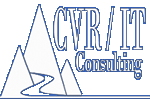Training Services → Beyond the Basics®
Controlling Change to Scope and Requirements
|
Controlling Change to Scope and Requirements provides two days of practical, hands-on training in the three primary approaches to project change control in predictive (waterfall) projects. Participants examine how to set the stage for effective project control, discuss how to establish project baselines, and then explore the details of formal change control. The benefits of change control on both project delivery and on the business value that follows the project are thoroughly examined. Topics include:
- Change control with a product lifecycle perspective
- How change control supports project success
- Three primary change control strategies
- How to minimize the need for change
- Setting scope boundaries in a project charter
- Importance of project baselines
- How to manage change when it occurs
- Implementing project change control
- Minimizing change through effective requirements management
- How to embrace change when it adds value
- Evaluating change requests for value
- Quantifying value with an Opportunity Register
- Change control success factors
Who should attend
This course is of special value to project managers who want a more complete understanding of project Change Control; functional managers who want to understand what they can do to prevent Scope Creep; and Project Management Office staff who want better management of change in their project portfolio.
Prerequisites
This course assumes that participants have participated in some projects and have some experience leading small projects or project teams. Prior PM training is helpful but not required.
Course Outline
I. Introduction
- The nature of project change
- Definition of change control
- Three primary change control strategies
- How change control supports successful project delivery
- How change control protects post-project Business Value
II. Minimizing the Need for Change: Initiation Phase
- How the Project Charter helps Change Control
- Defining business value and project objectives
- Setting preliminary scope boundaries
- Gaining stakeholder buy-in to change control
- Why effective estimation matters
III. Minimizing the Need for Change: Planning Phase
- Including the perspective of stakeholders
- The importance of thorough project planning
- Value of a structured requirements process
- WBS and Scope Statement
- The value of definitive project baselines
- How to minimize last minute changes
- How effective risk management promotes control of change
- Business Value planning
IV. Change Control Overview
- Developing a change control plan
- The work of change control
- Tools of change control
- The change authority
V. Controlling Change When It Occurs
- Managing change to scope and requirements
- Defending preliminary scope boundaries
- Keeping scope, time and cost in balance
- Sources of project change
- Managing change requests
- Using business value as a guide to change control
- Managing requirements
- Dealing with mandates
- Change and risk
- Managing baselines
- Working with a vendor's change control system
- Challenges to the enforcement of change control
- Reporting project changes to stakeholders
VI. Embracing Change
- Effective change control strategies
- Evaluating Change Requests (CRs) for value
- Qualifying CRs with an Opportunity Register
- Evaluating CRs with an Opportunity Screen
- Selecting high value changes
This course includes numerous hands-on exercises and discussions that reinforce comprehension and retention.
Why should I take this course?
- All participants take home a set of tools and techniques to help them deal with critical aspects of change control, including a list of change control Best Practices and a set of commercial quality templates.
- Experienced project managers will obtain tools and insights that lend structure and perspective to the wealth of experience they already have.
- Take this course and learn how to avoid many of the problems that project managers most often encounter when dealing with change.
Learning Approach
- A highly experienced instructor will use interactive lecture format, hands-on exercises, team activities, group discussions, and other techniques to drive home the essential points of this material.
- You have the option of using your own, ongoing project as the focus of class exercises. As a result, not only do you gain experience with the tools, but you also learn more about your project.
- We will build on your prior experience in this topic, while providing you with a structure and vocabulary to use in future projects.
- You will receive a Participant Guide which will help you follow the material, take notes and retain what you learned so that you can apply it on your job.
Training Providers:
License this courseware!
For for more information, call:
+1 919-495-7371
Student comments on this course
- "Course material exceeded my expectations on detail and depth of content."
- "Great material, discussions, group dynamic, and instructor."
Every course and workshop in our Project Training program is fully customizable. We offer virtual delivery of the training program you need. Call us: +1.919.495.7371.
All of our courses are fully compliant with the latest release of each relevant standards document such as the PMBOK® Guide, Standard for Portfolio Management, BABOK® Guide, and others.
|
